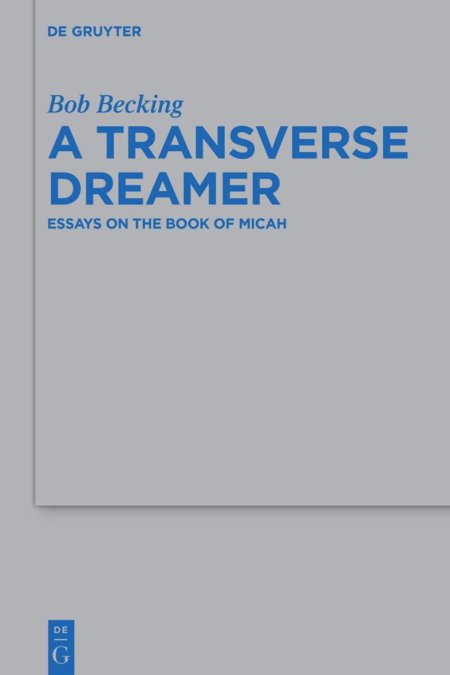Micah: A New Translation with Introduction and Commentary
Bob Becking

Emeritus Professor Bob Becking recently published Micah: A New Translation with Introduction and Commentary. This new examination of the 33rd book of the Hebrew Bible offers a new theory of its composition history.
A new translation
While the biblical book of Micah is most famous for its images of peace – swords forged into to plowshares, spears turned into pruning hooks – and its passages of prophetic hope, the book is largely composed of prophecies of ruin. The historical Micah, who likely lived in the late eighth century BCE, is the first recorded prophet to predict the fateful fall of Jerusalem, and he also foretells the destruction of the regions of Samaria and Judah, in addition to the more well-known promises of Judah’s eventual restoration.
Bob Becking translates the Hebrew text anew and illuminates the book’s most important elements, including its literary features, political context, and composition history. Drawing on ancient Near Eastern comparative evidence, archaeological notes, and inscriptions, Becking surveys the debates surrounding the book’s interpretation and argues that it be regarded as three separate source texts: the early first chapter; a large middle section containing a proto-apocalyptic, alternating prophetic futurology collected and moulded by a later redactor; and an added section advocating for legal reform under Josiah.
Essays on the Book of Micah

Bob Becking also published ‘A Transverse Dreamer: Essays on the Book of Micah’, as volume 552 in the series Beihefte zur Zeitschrift für die alttestamentliche Wissenschaft. The essays centre around the questions the final texts of the Book of Micah provoke: can the Book be read as a coherent composition or is it the result of a complex redaction history? And was Micah a prophet of doom whose literary heritage was later softened by the inclusion of oracles of salvation?
Some of the essays are of a more general character, while others analyse specific passages. Some articles discuss the Book of Micah by looking at specific themes (prophecy, religious polemics, metaphors). The others are concerned with the proclamation of a peaceful future (Micah 4:1-5), the famous moral incentive in Micah 6:8, and the question of prophetic and divine gender in Micah 7:8-13.

